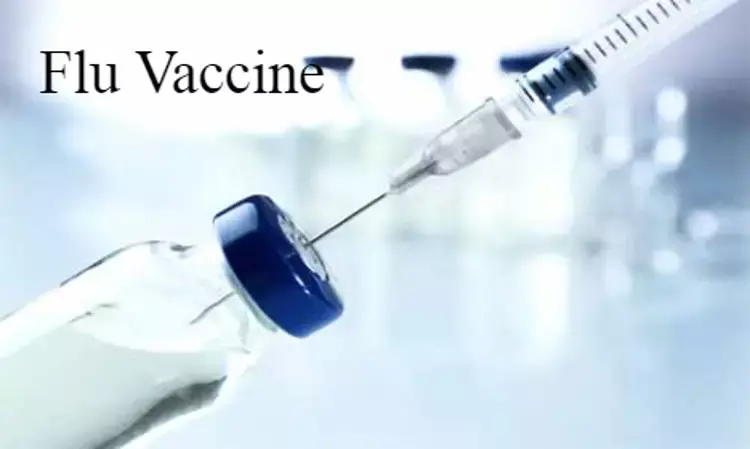- Home
- Medical news & Guidelines
- Anesthesiology
- Cardiology and CTVS
- Critical Care
- Dentistry
- Dermatology
- Diabetes and Endocrinology
- ENT
- Gastroenterology
- Medicine
- Nephrology
- Neurology
- Obstretics-Gynaecology
- Oncology
- Ophthalmology
- Orthopaedics
- Pediatrics-Neonatology
- Psychiatry
- Pulmonology
- Radiology
- Surgery
- Urology
- Laboratory Medicine
- Diet
- Nursing
- Paramedical
- Physiotherapy
- Health news
- Fact Check
- Bone Health Fact Check
- Brain Health Fact Check
- Cancer Related Fact Check
- Child Care Fact Check
- Dental and oral health fact check
- Diabetes and metabolic health fact check
- Diet and Nutrition Fact Check
- Eye and ENT Care Fact Check
- Fitness fact check
- Gut health fact check
- Heart health fact check
- Kidney health fact check
- Medical education fact check
- Men's health fact check
- Respiratory fact check
- Skin and hair care fact check
- Vaccine and Immunization fact check
- Women's health fact check
- AYUSH
- State News
- Andaman and Nicobar Islands
- Andhra Pradesh
- Arunachal Pradesh
- Assam
- Bihar
- Chandigarh
- Chattisgarh
- Dadra and Nagar Haveli
- Daman and Diu
- Delhi
- Goa
- Gujarat
- Haryana
- Himachal Pradesh
- Jammu & Kashmir
- Jharkhand
- Karnataka
- Kerala
- Ladakh
- Lakshadweep
- Madhya Pradesh
- Maharashtra
- Manipur
- Meghalaya
- Mizoram
- Nagaland
- Odisha
- Puducherry
- Punjab
- Rajasthan
- Sikkim
- Tamil Nadu
- Telangana
- Tripura
- Uttar Pradesh
- Uttrakhand
- West Bengal
- Medical Education
- Industry
Flu vaccine associated with small increased risk for subdeltoid bursitis

Influenza vaccination was associated with a small risk for subdetltoid bursitis in a large retrospective cohort study, an association that was previously supported by clinical evidence from case reports. Education and training on proper injection technique could prevent this adverse event. In fact Injection technique may be the key to limiting vaccine-associated bursitis risk.
The findings of the study have been published in Annals of Internal Medicine.
Influenza is a potentially serious disease that can lead to hospitalization and sometimes even death.An annual seasonal flu vaccine is the best way to help protect against flu. Vaccination has been shown to have many benefits including reducing the risk of flu illnesses, hospitalizations and even the risk of flu-related death in children.
Subdeltoid bursitis, characterized by pain and loss of motion in the shoulder, occurs in about 1 percent of the U.S. population and is usually due to injury. In 2012, an Institute of Medicine report concluded that evidence supported a causal relationship between the injection of a vaccine and deltoid bursitis, however, epidemiologic evidence for this relationship was lacking.
Researchers from the Centers for Disease Control and Prevention (CDC) studied data from the Vaccine Safety Datalink, which contains health encounter data for 10.2 million members of 7 U.S. health care organizations, to estimate the risk for subdeltoid bursitis after influenza vaccination. Of 2, 943, 493 vaccinated persons included in the analysis, the researchers found 16 cases of symptom onset in the risk interval and 51 cases of symptom onset in the control interval. The attributable risk was 7.78 additional cases of bursitis per 1 million persons vaccinated.
The authors of an accompanying editorial from Emory University School of Medicine and the University of Pennsylvania point out that vaccination technique seems to be a common theme in this study as well as in previous studies. Both needle placement and needle length matter. Hence, a technique "tune-up" could help to eliminate this adverse reaction among persons having vaccinations.
For further reference log on to: https://www.acpjournals.org/doi/10.7326/M19-3176
Dr Kamal Kant Kohli-MBBS, DTCD- a chest specialist with more than 30 years of practice and a flair for writing clinical articles, Dr Kamal Kant Kohli joined Medical Dialogues as a Chief Editor of Medical News. Besides writing articles, as an editor, he proofreads and verifies all the medical content published on Medical Dialogues including those coming from journals, studies,medical conferences,guidelines etc. Email: drkohli@medicaldialogues.in. Contact no. 011-43720751


